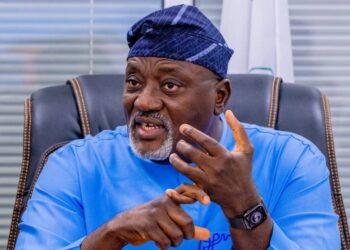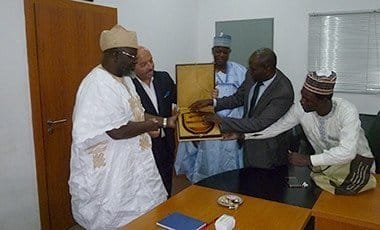ONLINE media practitioners in Nigeria have been urged to always double-check their facts before publishing news reports on their various platforms.
Resident Electoral Commission REC of Independent National Electoral Commission (INEC), in Oyo State, Barrister Mutiu Agboke; Ambassador Wale Ojo-Lanre and Bisi Oladele made the charge on Thursday at the maiden Seminar of the Online Practitioners Association of Nigeria (ONPAN), Oyo State chapter, in their lectures.
The seminar, themed, “Online journalism and media integrity in Nigeria”, was held on Thursday at the Dapo Aderogba Hall, NUJ Press Centre, Iyaganku, Ibadan.
Agboke urged journalists in the state to embrace professionalism, and also cooperate with the INEC in spreading accurate information to members of the public.
Ojo-Lanre, an Associate Editor with Nigerian Tribune in his lecture said that Online media has come to stay maintained that many bloggers and online media practitioners were embracing fake news, falsehood and propaganda to lure traffic to their sites.
The former Oyo NUJ boss then warned that this unprofessional style will only yield momentous gain because the public will soon sieve the chaff online media from the grains ones.
He called on online media to embrace the concept of fact-checking, which according to him, is the art of verifying facts, claims and information given by the news source.
His words: “I want to task everyone one of you who which to be respected and want to sustain the integrity of its blog and sites to imbibe the culture of fact Checking of any news items about to be published on your sites less you all, will lose your integrity and your sites will fizzle out of relevance.”
Ojo-Lanre also encouraged members of the association to be abreast of Freedom of Information Act 2011, which he described as the best act of National Assembly to ensure transparency in governance, probity and accountability.
“I see the online media practitioners as one of the major beneficiaries of this Act but I am doubtful if any of us here understand the imports and imperatives of this FOIA. I, therefore, ask everyone here to explore the FOIA,” Ojo-Lanre opined.
Mr Bisi Oladele, the South-west Bureau Chief of The Nation Newspaper in his lecture urged journalists to learn to delay gratification from their sources or clients but concentrate on creating a strong image for themselves and their media.
His words: “Many young journalists want to make money and fame within a year. Unfortunately, things don’t work that way. Everybody needs money but not everybody has the same attitude towards money. It is the attitude you have towards money that will differentiate you.
“If you want to exploit every opportunity to make money, you will never go far. Many journalists demand money as if their clients are owing them, thereby damaging their reputation.
“If all you do is to run after money you won’t see the money. It is those who pursue what can bring money that makes money.”
According to him, the only thing that can sustain a journalist is the quality of his content and the integrity of his person.
He stressed the need to practise good and ethical journalism by generating and disseminating credible and quality content consistently. He emphasized the need for training and retraining by going for courses, lectures, seminars and personally updating oneself in the business.
He advised: “Business takes time to mature and flourish. Publishers should know that they won’t generate profit from it immediately. It takes time to build credibility and fame for yourself.”
Oladele also advised online media practitioners to consider partnerships, thereby leveraging on individuals’ strengths, sources, expertise and investments to ensure a stronger platform.









